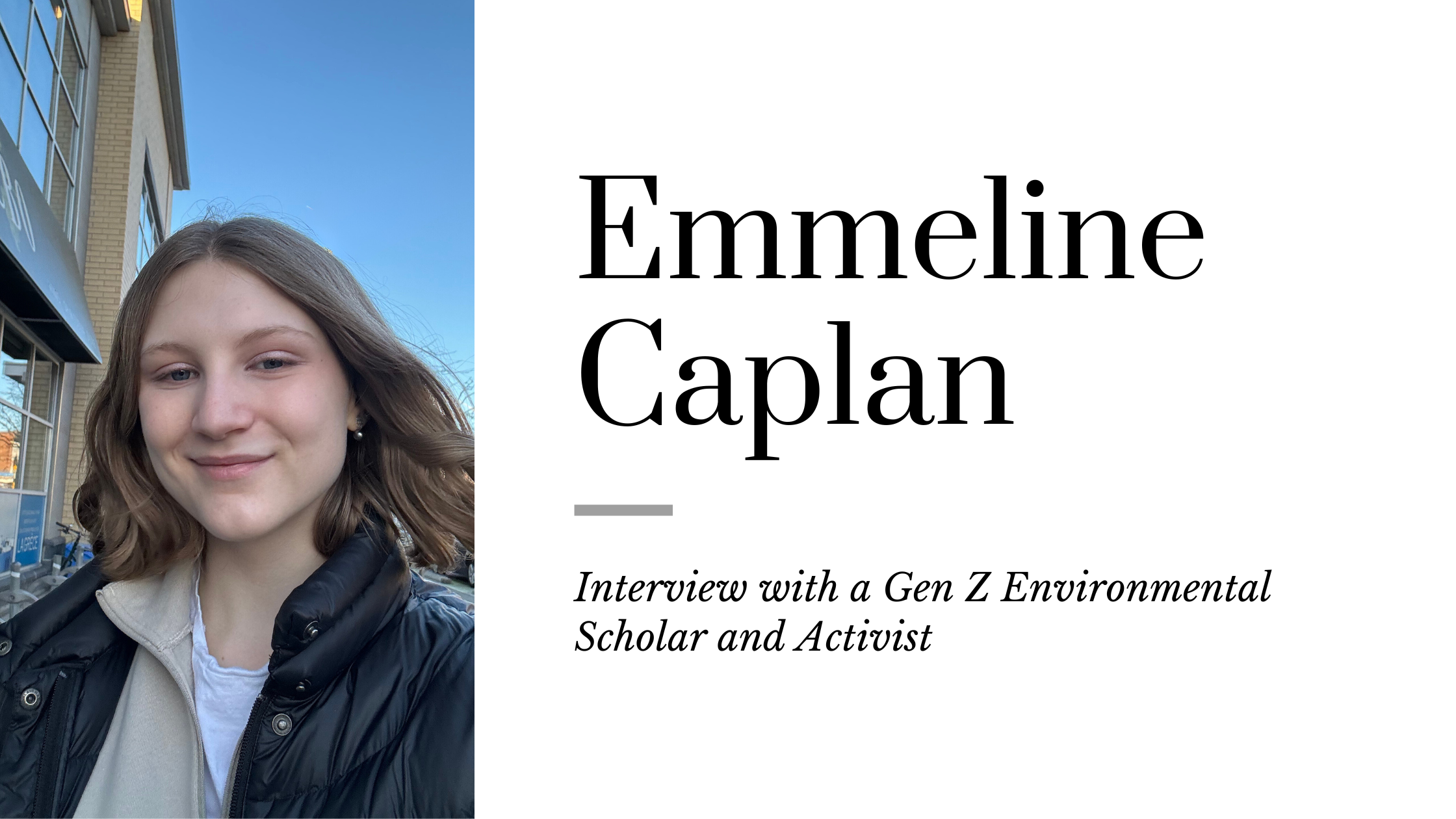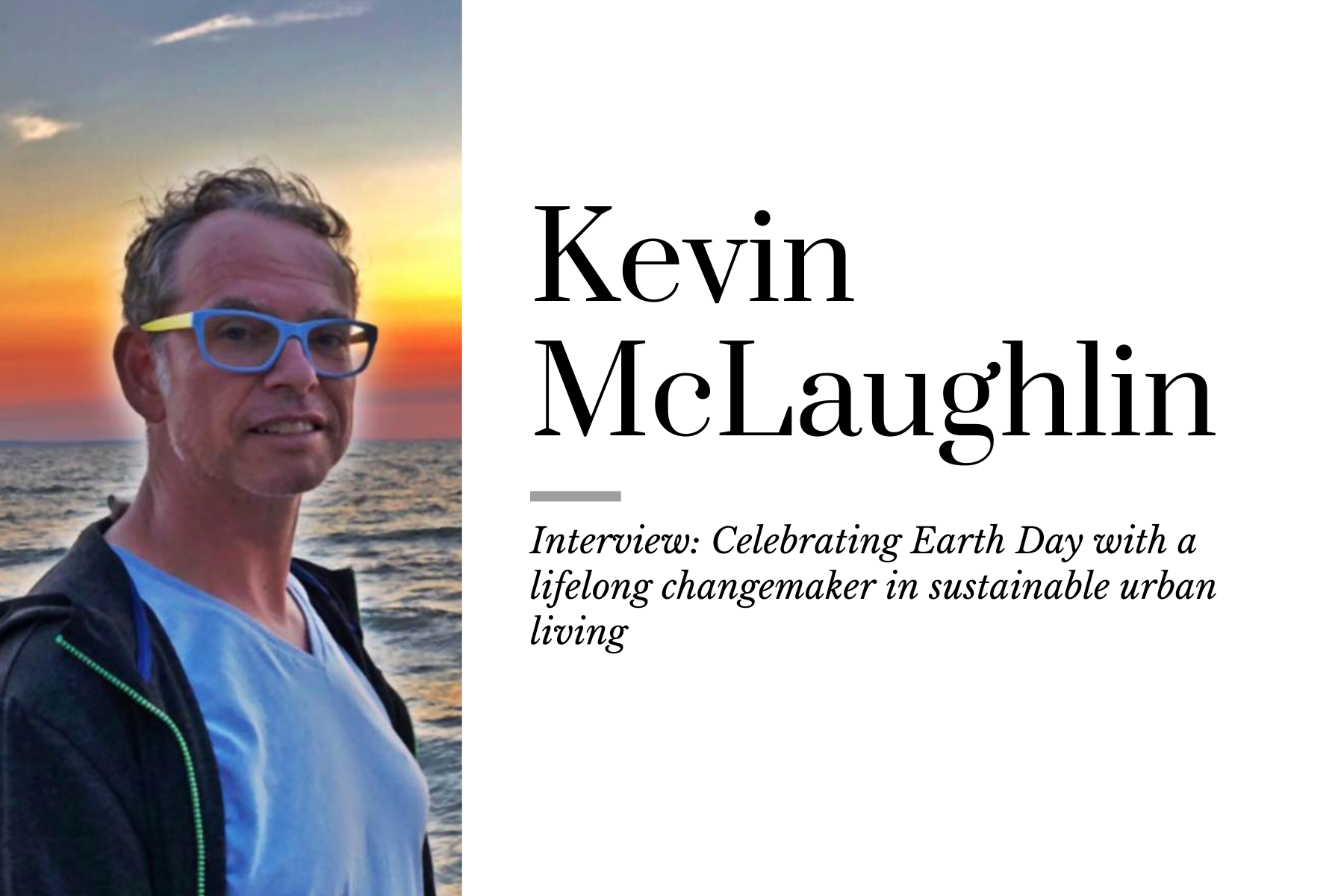Published on April 22, 2024
Earth Day Spotlight: A Rising Star in Environmental Activism
Meet Emmeline Caplan, a passionate environmental advocate. With a knack for leadership, she co-led the Trinity College Environmental Society, fostering collaboration and activism among students. From doubling social media presence for the Environmental Students Union to organizing EcoTone, an undergraduate journal, Emmeline's dedication to sustainability shines through her diverse roles. Currently delving into microgreen growing experiments and eyeing double masters at the London School of Economics and the University of Toronto, she's poised to become a formidable force in shaping eco-friendly policies for a greener future.
When I quizzed Chat GPT about the top worries for Gen Z, Gen Y, Gen X, and Boomers, only Gen Z ranked Climate Change as a top concern, and it snagged the number 1 spot for them! Surprisingly, even millennials didn't have the environment in their top three list.
Is it frustrating that climate change isn't a top priority for other generations?
I realize that not everyone has had the same chance to understand its importance. Growing up in my city, with my access to education and community, I had the opportunity to learn about and take action on climate change. It was less than 100 years ago when the immediate harmful effects of pollution were discovered and even less time that we understood the global impacts of our actions, but my generation had these topics in our textbooks.
"The frustrating part is when those who claim to understand the issue of climate change and actively choose not to live more sustainably... but I actively choose to not let it bog me down and will keep going!"
How can Gen Zer's inspire grassroots action in generations that do not understand the importance climate action.
"The most important thing we can do is listen."
We must understand what does and doesn’t matter to them and why. Maybe it's not that they don't care about the planet, but they've got other priorities like money or health. Take parents, for instance. Yes - they want a green future for their kids, but college funds might be higher on their list than pricey eco-products, and quality clothing. However, from an environmental perspective, the case can be made that investing in quality stuff pays off in the long run, saving both cash and the planet.
Also, when money is not a concern, you've got the freedom to explore green living and have more time for education and grassroots action.
By listening, understanding, and applying kindness and patience, then taking the time to effectively communicate the importance, we can inspire others
With your work background in shaping ESG (Environmental, Sustainability and Governance) practices for big players do you believe the secret sauce for change lies in the big boardrooms?
"Big players absolutely need to adopt ESG practices for everyone's benefit!"
It's tough for consumers or constituents to distinguish truly sustainable products or practices due to widespread greenwashing. This undermines individual efforts toward sustainability.
I've had firsthand experience with the labour-intensive process of tracking and measuring the carbon footprint of a large company on behalf of the shareholders. By effectively calculating their ESG impact at all levels, companies in the private sector can make adjustments and be fully accountable to both the consumers and their investors.
However, even if issues stem from the private sector, the buck stops with governments who bear responsibility for regulating processes within their borders and managing interactions with other entities.
Where do you see the most hope when it comes to climate action?
"Perhaps I am just an optimistic person, but I see hope everywhere."
And the most hope in climate policy leaders taking meaningful action.
For instance:
- UofT's recognition as the most sustainable university on the QS ranking system is promising.
- Canadian policy banning single-use plastics
- Canadian Gov't contributing $16 million to an international climate relief fund for low-middle income countries
- Urban planners prioritizing sustainable building practices
- and... just when people are talking about it more!
A study found only about 24% of 20- to 24-year-olds had a driver's license, compared to nearly 50% in 1983. How does your generation view transportation, and, (being an early adopter) does VOOMcart fit with your vision of the future?
The convenience of cars for my generation depends largely on location and city design. In urban areas like Toronto or New York, public transportation often trumps driving due to cost, maintenance, parking challenges, and traffic congestion. Conversely, in sprawling towns with limited transportation options or for individuals with mobility issues, driving may be necessary. Electric cars would be a great choice... but their high upfront cost poses a challenge for many in my generation.
VOOMcart fits with my vision for sustainable, walkable cities. Cars pose both immediate dangers and environmental issues, while VOOM allows for larger grocery hauls and errands sans car.
"It promotes exercise and fresh air, and as I stroll with the VOOMcart, my neighbours will say hello - so it also promotes community!"
With the VOOMcart, I simply don’t need a car to carry my goods.

Fun Fact: Emmeline Caplan spent her formative years growing up in Staten Island - which is where NYC introduced it's first recycling pilot program in 1986!
And..From Chat GPT "top generational concerns" research:
Generation Z (born roughly between 1997 and 2012):
- Climate Change and Environmental Sustainability.
- Mental Health and Well-being
- Social Justice and Equality
- Financial Stability and Economic Security
- Work-Life Balance and Job Flexibility
- Access to Affordable Healthcare and Education:
- Work-Life Balance
- Financial Security and Retirement Planning
- Healthcare Costs and Aging Parents
- Retirement and Financial Stability
- Healthcare and Aging-related Issues
- Social Security and Government Policies





